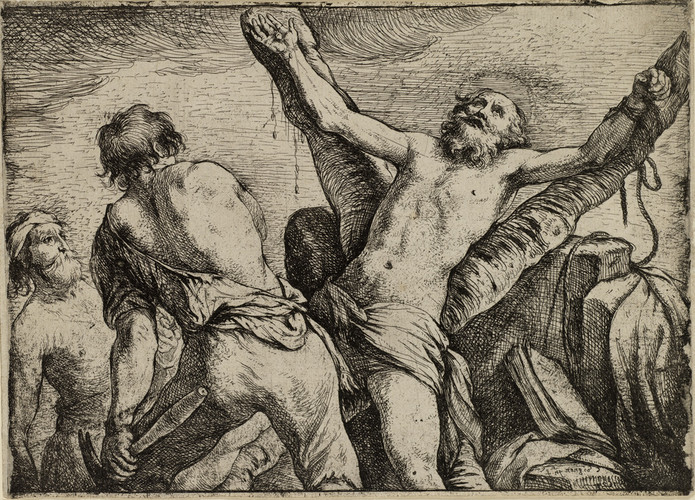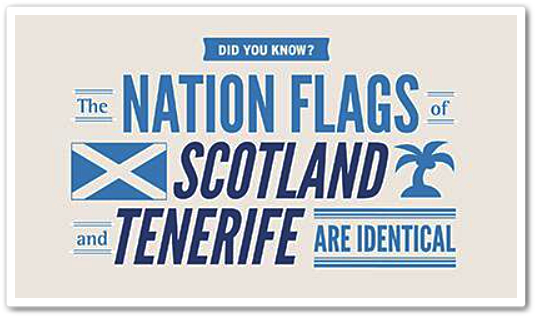Who was ‘St Andrew’?

The name ‘Andrew’ in Greek means ‘manly’. Andrew certainly looks to have lived up to the calling given to him by his parents to be a strong man. History tells us that, despite the dangers, he proclaimed the good news of the Gospel wherever he went, and according to tradition, didn’t shrink back and died a martyr for his faith.
This really is being written in response to a Website published by the government of Scotland inviting everyone to ‘Share Small Acts of Kindness’ and ‘be like St Andrew’ on St Andrew’s Day. The Website has a page that claims to tell its readers who St Andrew was but makes no mention of some very important facts.
Andrew was one of Jesus’ Twelve Apostles and also the brother of Peter (Matthew 10:2, Luke 6:14).
In both the Gospels of Matthew and Mark, Andrew and his brother Peter were called together to become disciples of Jesus and to leave their business as fishermen and become “fishers of men”. (Matthew 4:18-22, Mark 1:16:20).
In John’s Gospel, Andrew had been a disciple of John the Baptist but upon seeing Jesus, and being told by John who Jesus was, Andrew began to follow Jesus. Andrew went and told his brother, Peter, that he had found the Messiah and brought Peter to Jesus (John 1:35-42).
After becoming a disciple of Jesus, Andrew is referred to as being present on some important occasions as one of the disciples more closely attached to Jesus (Mark 13:3, John 6:8, John 12:22). He is only mentioned once in the book of Acts (Acts 1:13).
It was Andrew who told Jesus about the boy with five small barley loaves and two small fishes prior to the feeding of the five thousand (John 6:8). Unfortunately for him it was also recorded that he doubted that this small amount would be of any use at all.
It was Andrew who told Jesus that some Greek travellers to Jerusalem, for the Feast of Passover, and wanted to speak with Jesus (John 12:20-22). Jesus doesn’t give a direct reply and the implication is that there wasn’t enough time given that Jesus was very shortly to be arrested, tortured and crucified. However, I wonder if the need for the Greeks to speak to Jesus stayed on Andrew’s mind. Could that be one of the reasons that he seemingly ended up in Greece to proclaim the Gospel and where he too was allegedly crucified himself?
Outside of the Gospels and the book of Acts the rest of Andrew’s life is a little bit sketchy and the sources of the tradition are not that reliable. The historian Eusebius, mentions a book called The Acts of Andrew which failed to make it into our bible. Another rather damming fact about this book is that it was used and quoted by Gnostics and Gnosticism is a very dangerous heresy, which is still very much alive today. Indeed, The Acts of St Andrews can still be found on a modern-day Gnostic Society Website.
Eusebius in his church quotes Origen as saying that Andrew preached in Scythia. The Chronicle of Nestor adds that he preached along the Black Sea and the Dnieper river as far as Kiev, and from there he travelled to Novgorod. Hence, he became the patron saint of Ukraine, Romania and Russia. According to Hippolytus of Rome, Andrew preached in Thrace. Basil of Seleucia also knew of Apostle Andrew’s missions in Thrace, Scythia and Achaea.
Tradition tells us that Andrew was martyred for his faith by crucifixion at the city of Patras in Greece. Like his brother Peter who was traditionally crucified upside down because he didn’t feel worthy to be crucified like Jesus, he chose to be crucified on a X shaped cross or “saltire”. He was supposedly put to death because he vehemently preaching against idol worship and pointing to Jesus as the only true way to God.

Again, it is tradition that Andrews remains ended up in Scotland, in St Andrew’s and this is why Scotland took the “saltire” as their national flag which also became part of the Union Jack and flag of Great Britain. Incidentally, the “saltire” is also the flag used by Tenerife (which is very similar to the Scottish flag).
The “saltire” was also used in Scotland, by some, as a hex to somehow scare off witches and evil. Which would have been a total anathema to Andrew.
Andrew would have been shocked and appalled to see how he celebrated to today as ‘a saint’ and as in Scotland on a specific day of the year. He would never have let his name be used as it is by the current Scottish government on their Website.
Andrew knew too well the utter futility of “good works”. He would quote to them Isaiah 64:6 in which God declares that “all our righteous deeds are like filthy rags” to Him.
No, the only way of salvation is by faith in Jesus Christ, it’s not by works so that anyone can boast (Ephesians 2:8-9, Acts 4:12).
Let us remember Andrew for who he truly was, a disciple of our Lord Jesus who, yes, no doubt went about doing ‘good’; healing the sick, casting out demons but above all, he preached the Gospel.
